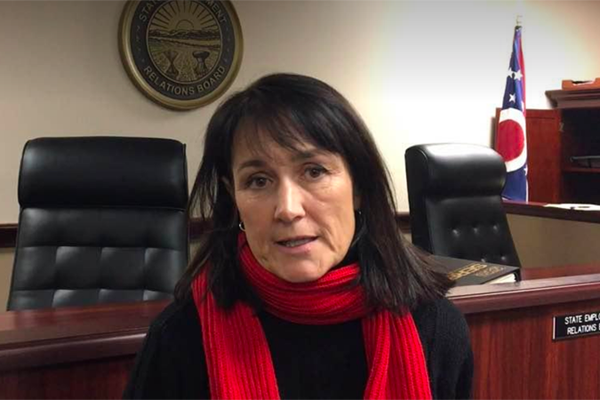
Excerpt from Jacobin Magazine: An interview with Noeleen McIlvenna
In late January, hundreds of faculty union members at Wright State University went on strike. What ensued was a twenty-day work stoppage, one of the longest strikes at a public university in American history.
The strike came in response to a contract imposed unilaterally by the administration in early January, featuring dramatic cuts across the board. While the final agreement reached at the end of the strike contained some concessions from the union, such as reductions in summer teaching pay, the union successfully protected its right to bargain over healthcare, and won a 5 percent raise for members by 2023.
Noeleen McIlvenna, a professor of American history at WSU, was the chair of the contract campaign and strike committees of the university’s chapter of the American Association of University Professors (AAUP-WSU).
Jacobin’s Meagan Day spoke with McIlvenna about how she and her coworkers maintained the line, the growing class consciousness of white-collar professionals, the inspiration they drew from the Red for Ed strike wave, and the importance of public education to the entire working class.
Meagan Day: There must have been enormous pressure to go back to work. How did you maintain the line for that long?
Noeleen McIlvenna: We’ve had a strong union for years, and people had come to understand that it was a great asset to them. The contract has protected not just salaries, benefits, and workload, but things like promotion and tenure. In most universities, these are things that give faculty great anxiety.
So in many ways over the years, people have seen that their union protects them, and they compared that to the stories from other campuses where faculty didn’t have union protection. That has given us a very stable long-term base.
When we began our contract campaign, long before the strike, we had a good system of transparent communication, keeping our membership informed every step of the way and helping members understand exactly what’s at stake.
And then, when the President and the Board of Trustees came after everything in our contract, that instilled an even greater sense of unity. They went after tenure, workload, salaries, benefits, summer teaching, the circumstances in which non-tenure faculty could get security of employment. Everybody was affected by at least one of those issues, and most by many of them.
When the board imposed this dreadful contract on January 4, the necessity of a strike was immediately clear. It was so horrific that nearly everyone was affected in a very negative way. We had over 90 percent of members vote, and 85 percent of them voted to authorize a strike.

